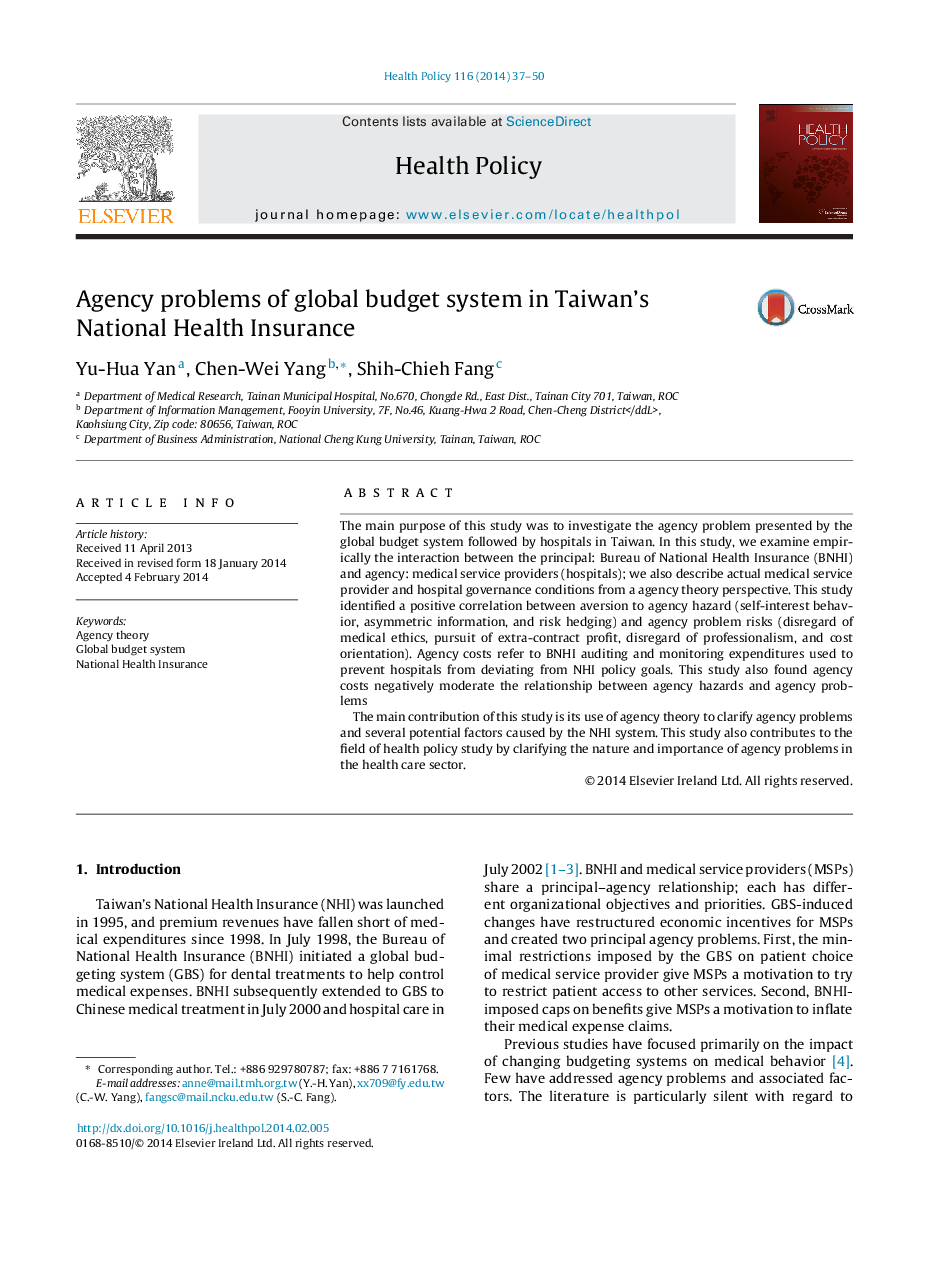| Article ID | Journal | Published Year | Pages | File Type |
|---|---|---|---|---|
| 4197808 | Health Policy | 2014 | 14 Pages |
The main purpose of this study was to investigate the agency problem presented by the global budget system followed by hospitals in Taiwan. In this study, we examine empirically the interaction between the principal: Bureau of National Health Insurance (BNHI) and agency: medical service providers (hospitals); we also describe actual medical service provider and hospital governance conditions from a agency theory perspective. This study identified a positive correlation between aversion to agency hazard (self-interest behavior, asymmetric information, and risk hedging) and agency problem risks (disregard of medical ethics, pursuit of extra-contract profit, disregard of professionalism, and cost orientation). Agency costs refer to BNHI auditing and monitoring expenditures used to prevent hospitals from deviating from NHI policy goals. This study also found agency costs negatively moderate the relationship between agency hazards and agency problemsThe main contribution of this study is its use of agency theory to clarify agency problems and several potential factors caused by the NHI system. This study also contributes to the field of health policy study by clarifying the nature and importance of agency problems in the health care sector.
